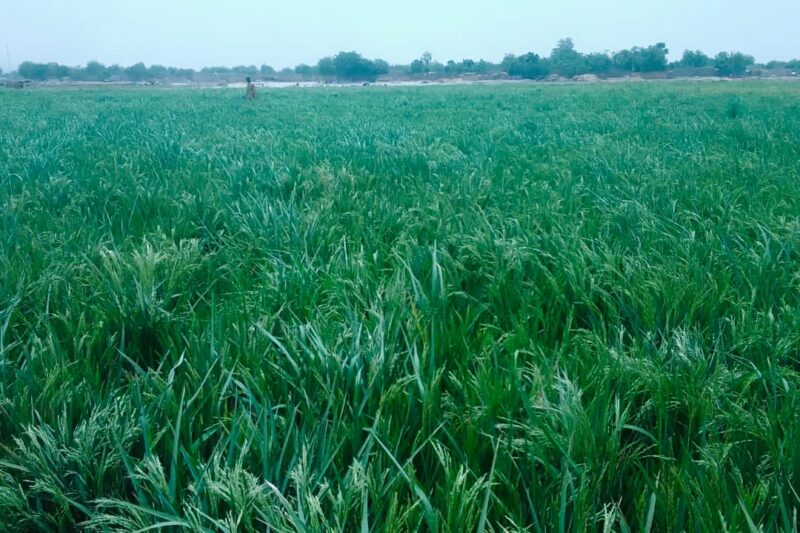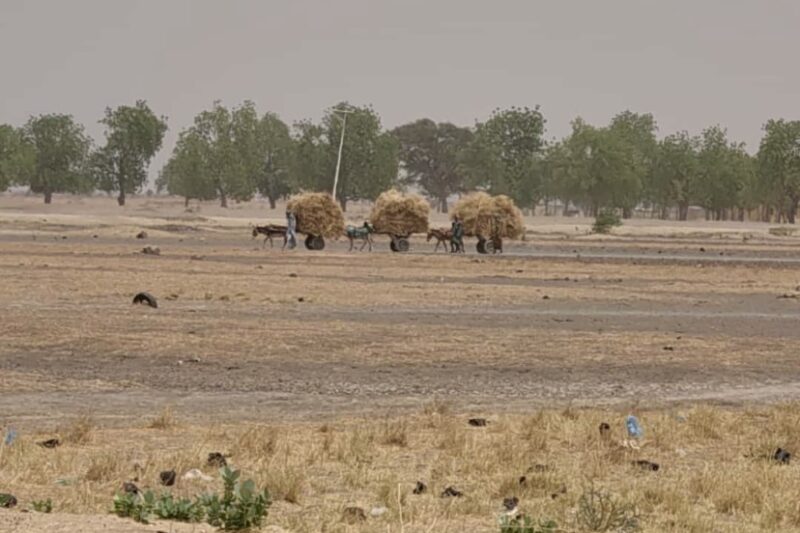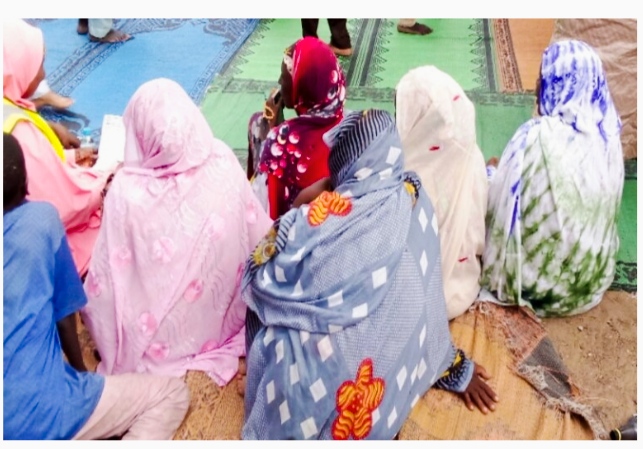Insurgents are again affecting the lives of internally displaced persons. Apart from being the reason for their displacement in the first place, they are now making it impossible for the residents of IDP camps to go to the bushes and forest on the outskirts of Maiduguri to search and collect thatching materials and firewood.
Troops have even been dispatched to ensure roads to the forest are closed, allowing collectors limited access only occasionally.
Although this has an impact on many households in Maiduguri, IDPs are most affected because they rely on thatching to provide more space outside their tents and for shelter from the rain, especially during the wet season.
Sani Ibrahim, originally from the Marte Local Government Area of Borno State but who now lives in Maiduguri’s Muna IDP camp, told RNI reporter Aisha Jamal that the government had given his family a tent inside the camp but, because of the number of people, the room was too small.
“The only way to increase the size and make more space is to put an extra roof outside and for that we use thatching.”
Mustapha Umar agreed with him, saying: “The space in the tent is not big enough. I bought thatching material to increase the area. It helps me and my family because we can sit underneath it when it is hot and when it is raining.”
Abdullahi Yunusa said that, as a poor person, he was unable to afford the usual building materials, so he had used thatching and leather to increase the size of his tent.
Mala Ali, who owns a thatching business in the city, said there was a scarcity of thatching material. He said fewer people were venturing into the bushes and forest on the outskirts of Maiduguri because they were afraid of getting attacked by insurgents. Also, the troops had closed the road to the forest and allowed only limited access.
“There is a huge demand for thatching materials, especially from the IDPs, but the insurgents have made it almost impossible for people to collect dry vegetation, such as sticks, stems and reeds, which are needed for the thatching.
“We used to get sticks and other items from the forests even though we were scared. But we had to go because that’s how we make a living. Sometimes when we have gone out, we have come across Boko Haram [Jamā’at Ahl as-Sunnah lid-Da’way Wa’l-Jihād – JAS] insurgents. If you are lucky, they might not kill you.
“But there was a time we went and saw the insurgents and they began to shoot at us. But we managed to escape unharmed.”
Ali said the troops had closed the roads to the forests because of the insurgents. “They only let us in occasionally now which is why there is a scarcity of thatching material.”
He said that, not so long ago, the insurgents killed between 20 and 30 people a day while they were searching for thatching material and firewood.
“Compared with this time last year, no one has been killed recently. We thank God.”
Ali said the authorities had to provide better security and reopen the road leading to the forest.
“As it stands now, we cannot get to the forest. It means our business suffers but it is the IDPs I really feel for. It is the rainy season now and they need thatching material. Thatching costs a lot less than other building materials. When the word goes out that we have thatching material in stock, they come at once to buy it. But, right now, we don’t have anything to sell them and they are suffering because they cannot add more space to their tents without the thatching and they have little space to shelter from the rain.”
AISHA SD JAMAL








